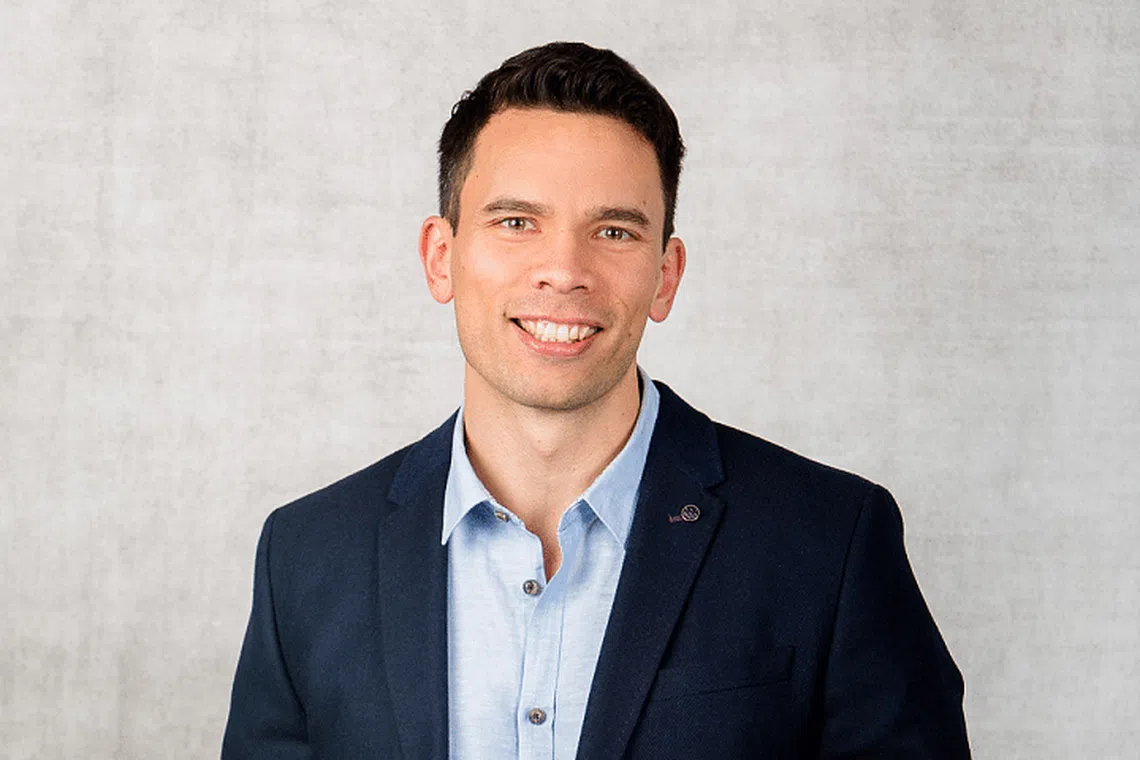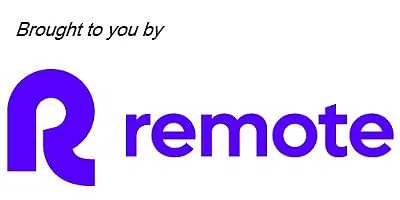Towards 'globally distributed work': How firms can tap into international talent pools to compete and expand
Remote has the expertise and infrastructure to support companies hiring from anywhere in the world
The pandemic has spurred a work from home revolution. It was borne of necessity during the early days of the crisis, but the shift towards hybrid work has reshaped the traditional on-site 9-to-5 model. While working from home is no longer the default model in Singapore as restrictions eased, flexible working arrangements are important to employees, as well as employers.
Even as the global economy emerges from the shadows of the pandemic, the future of work has been transformed to a distributed model. Chris McNamara, chief revenue officer at Remote, explains that a distributed workforce is changing the hiring landscape and companies are tapping the international market to access a broader talent pool as they restructure to boost expansion in a post-pandemic world.
Remote was founded in 2019 by CEO Job van der Voort - who is based in the Netherlands and worked at GitLab until he formed the startup with Lisbon-based Marcelo Lebre. Remote is a tech unicorn valued at US$3 billion and raised US$300 million in a Series C round in April 2022.

Below, McNamara answers questions about why the future of work is distributed and how companies can benefit from it.
Q: Why are globally distributed teams, where workers are based in different parts of the world, the future of work?
A: Our view is that the single biggest trend in the future of work is the rise of globally distributed teams and remote work. There is growing evidence that this shift to distributed teams is a permanent one. A recent survey by International Data Corporation (IDC) among companies in Singapore, Australia, New Zealand and India found that over 40 per cent intend on filling 20 to 30 per cent of their open roles with remote workers in the next 12 to 18 months.
Distributed work refers to any work structure where people are not face to face in the same place at the same time. Remote work can come in different flavours such as working from home or working from a location that is not your home.
While not all companies can move to a distributed model, the barriers to this shift are increasingly dissolving, especially for companies enabled by technology and operating in a knowledge-based economy.
What started as a reaction to the pandemic has become both an awakening and a necessity in a very tight labour market as it is extremely challenging to fill open roles if companies restrict themselves only to the locations where they have an office.
Q: What are the benefits of a distributed work model as opposed to a traditional work model or even a hybrid model?
A: Taking Remote, a business of 1,000 people and operating in 70 countries, as an example, it is a fully distributed business. Being able to recruit the very best people from different locations has enabled us to create a model where our business fully leverages the benefit of people being based in different time zones around the world.
From a personal perspective, I was approached by Remote at a time when I was struggling with living so far away from my family in Australia (I was based in the San Francisco Bay Area at the time) as my mother was diagnosed with cancer. Here was this business that was enabling people to work from anywhere. I constantly felt like I was choosing between what made sense for my professional career, and what made sense for me personally. And when I joined Remote, I no longer had to choose between those two things.
Hybrid work is very challenging for small to medium-sized businesses (SMBs) as the opportunity costs of maintaining an office for employees who may use it a couple of times a week is high.
It's a huge mindset shift. Employers who are exploring remote work should focus on measuring outcomes rather than input. For example, instead of asking if someone is in the office, focus on the outcome, such as, is that person delivering high quality work?
Q: How can employer of record (EOR) companies such as Remote help companies as they adopt distributed work and hire beyond their national borders?
A: For most companies, employing someone in a new global location is complicated, expensive and takes a lot of time. Remote expedites and simplifies this process as it has built the expertise and global infrastructure to support employment anywhere around the world. Companies can move far more quickly and with greater confidence by leveraging EOR companies to employ their international teams and manage all of the associated compliance obligations of employment.
Singapore companies surveyed in the recent IDC-Remote report reveal that cost-effective workforce options are the top business priority, and finding the right mix of skills in target countries is a key challenge in hiring internationally.
Q: Are EORs the same as professional employer organisations, or professional employer organisations (PEOs)?
A: A PEO is a professional structure that can only exist in certain places around the world. That is a structure that can be used in certain jurisdictions, for example in the US, and is not applicable in all markets. For example PEOs don't exist in Singapore.
Remote has served companies in the region for some time, but didn't have a dedicated presence until about six months ago. It now has team members who are based in Australia, Indonesia, Hong Kong, and India, and is looking to hire in Singapore.
Q: What are some of the misconceptions people have about using EORs, such as local jobs loss and lack of loyalty by new hires?
A: The perspective that going outside your national borders is taking away jobs from locals is a self-limiting belief. If there were readily available prospective employees in your local market, then you wouldn't have the challenge of hiring people for those open roles you are trying to fill.
The reality is that there is more demand for certain types of roles than supply, and that for many SMBs they are crowded out of the market locally by businesses that have much deeper pockets.
Forward-thinking businesses see EORs as an opportunity to unlock the talent pipeline, move more quickly and bring more diversity to the workforce.
There is no reason to believe that an employee hired through EORs is less loyal than someone employed directly. The quality of the company's relationship with remote employees depends entirely on how the employer establishes that relationship.
Remote assists companies with matters ranging from hiring, payroll management, employee benefits and other compliance issues, empowering remote and dispersed workforces with tools needed to succeed. Visit https://remote.com/ for more information.

Decoding Asia newsletter: your guide to navigating Asia in a new global order. Sign up here to get Decoding Asia newsletter. Delivered to your inbox. Free.
Copyright SPH Media. All rights reserved.
